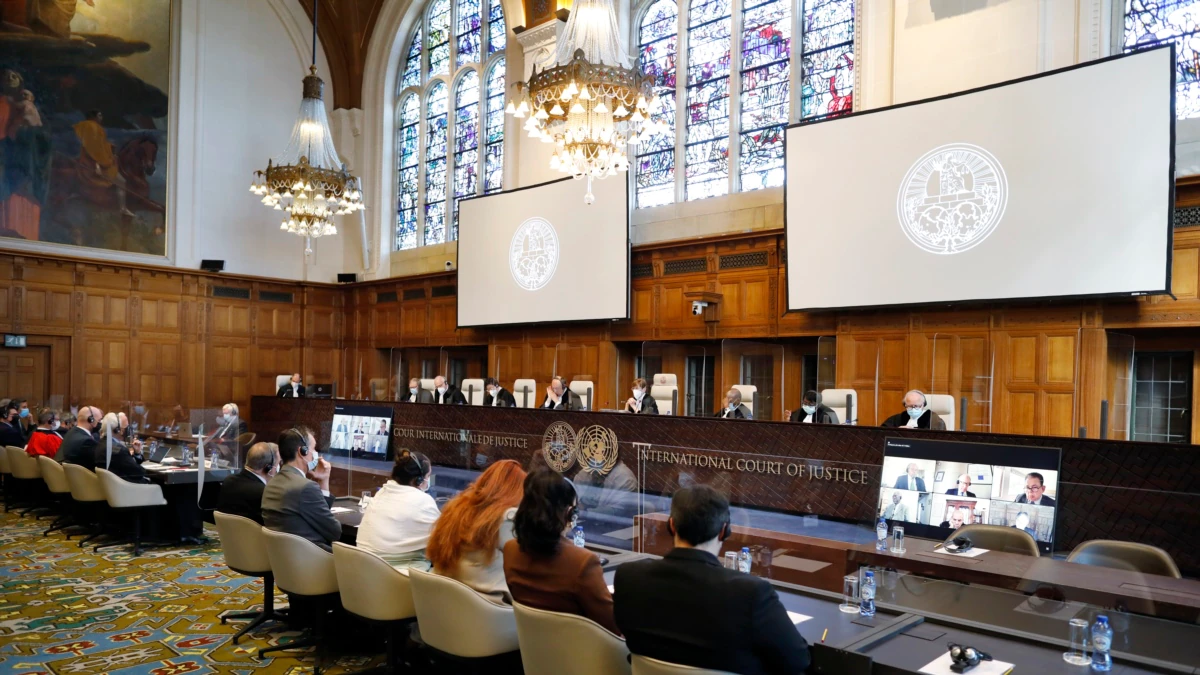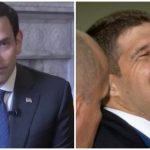The ruling issued this Thursday by the International Court of Justice (ICJ) in The Hague, which ruled in favor of Nicaragua in the case against Colombia for “alleged violations of sovereign maritime rights in the Caribbean Sea”, further strained relations between the two countries that in fact They had been broken for a long time.
From the Nicaraguan Parliament, the pro-government legislators branded the sentence “historic” but charged against the Colombian president, Iván Duque, who has criticized the government of Daniel Ortega for human rights violations and for the electoral elections last November, in which the president was imposed for a new term of five more years.
“We feel blessed, proud, happy, happy, celebrating the victories that are for peace, understanding and the search for reaffirmation and truth because we do not lie”, celebrated the Vice President and Government Spokesperson, Rosario Murillo. “They have always been the recognized truths of Nicaragua, small but great in dignity and sovereignty, struggles and victories”.
The pro-government legislator Wilfredo Navarro, for his part, expressed in the session of the National Assembly that the sentence in The Hague “marks a historical, transcendental milestone”, but accused Duque of disobeying past verdicts.
“Colombia is trying again to disregard that sovereign right recognized by The Hague and intends to disregard the ruling. They who in the past have spoken of respect for human rights are the first to violate them by ignoring an international ruling,” said Navarro in the parliamentary session.
He also pointed out that “the court of the world will have to judge Colombia for its arrogance and the attitudes” of the Colombian president, whom he called a “gorilla”, not only because he is unaware of international rulings, but because – Navarro affirmed – “violent day by day human rights” in his country.
“Does the gorilla Duque dare to say that he is a defender of human rights, will he be a defender when he fails to comply with a sentence handed down by the highest court of justice?” Navarro lashed out.
From Colombia, President Iván Duque pointed out that what exists in Nicaragua is a “disgraceful dictatorship that ignores the fundamental rights of the opposition, the free press and the private company”, therefore, he indicated that he would not send any ambassador to Managua “until democracy is restored”
“We are clear that there is a dictatorship that overrides international law, human rights and freedoms, in short, clearly with Nicaragua there is no possibility that we will enter into a negotiation of a treaty,” Duque stressed to the Colombian media.
Colombia withdrew the ambassador to Nicaragua, Alfredo Rangel, in February of this year after Ortega called that country a “narco-state” where its social leaders are assassinated daily.
The Nicaraguan Foreign Ministry, for its part, received a note of protest from the Iván Duque government in which it rejected Ortega’s statements, clarifying that Colombia has been a victim of drug trafficking and that it is a country that respects freedoms and democracy.
Analysts say political tensions should not interfere with verdict
Some analysts consulted by the voice of america They point out that the tensions between the governments should not interfere in the ruling of the highest court of international justice, although they clarify that the beneficiary in the end is Nicaragua.
“The ruling of the International Court of Justice is in favor of the territorial sovereignty of Nicaragua as a country and not in favor of the dictatorship. It benefits all Nicaraguans, especially when we have democracy. Supporting the sentence in no way means endorsing or supporting the illegitimate regime, ”he told the VOA Managua political analyst Enrique Sáenz via telephone.
Meanwhile, via email, the expert in international law, Julio Icaza Gallard, former representative of Nicaragua in the United Nations, indicated that the government of Iván Duque is expected to comply with the 2012 ruling and this new sentence and that, given the proximity of the general elections in that country, will be the responsibility of whoever succeeds him in the Presidency.
“Defending sovereignty and territorial integrity is the obligation of every State. That defense must, however, be made within the framework of international law, in respect of which the sister Republic of Colombia has always stood out. We hope that this sentence paves the way to comply with the 2012 sentence and leads to a constructive dialogue between both countries”, concluded the expert.
Connect with the Voice of America! Subscribe to our channel Youtube and turn on notifications, or follow us on social media: Facebook, Twitter and Instagram

















